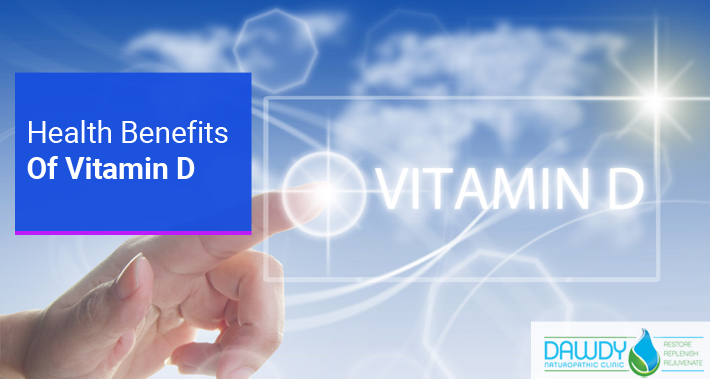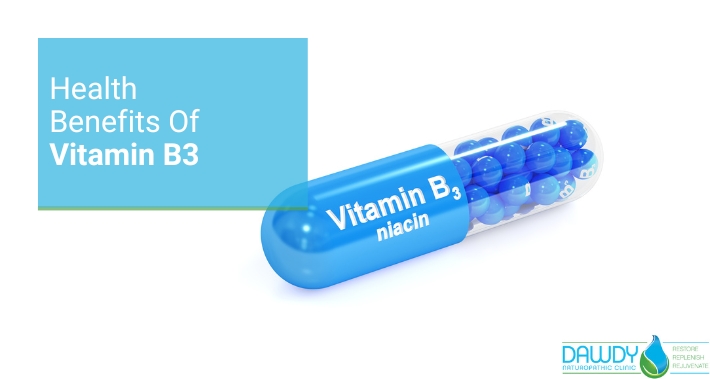Health Benefits Of Vitamin D
Vitamin D is a powerful vitamin that supports many different functions of your body.
You can create it naturally through sunlight.
However, if you live in a cold climate like the people I see as a naturopathic doctor in Ottawa, there’s a strong chance that you’re not getting enough.
The good news is that you can also find vitamin D in foods and in supplements.
A naturopathic doctor is a great resource to work with to make sure that you make the right decisions for your body.
When I see folks who are seeking out a naturopath for anxiety, I often recommend vitamin D.
But what is vitamin D?
Why is it so important?
Let’s find out more.
What Is Vitamin D?
Technically, vitamin D is not a vitamin, but a steroid hormone.
What does that mean?
A vitamin is an organic substance that your body needs to function, but can’t produce on its own.
Vitamin C is a perfect example of this.
You can’t make it yourself, so you have to eat something with vitamin C in it (either food or a supplement) to get what you need.
With vitamin D though, it’s a little different.
It’s often referred to as the ‘sunshine vitamin’ because your body creates vitamin D when your skin is exposed to the sun.
But, it can be difficult for your body to get enough sun exposure to produce the optimal amount of vitamin D if you live in colder climates like Canada.
Just because it’s not technically a vitamin doesn’t mean it isn’t essential for your good health, though.
Copper, manganese, potassium, and iron aren’t vitamins either – they’re minerals.
But that doesn’t mean eating pumpkins, which are abundant in all of the above, isn’t good for you.
These technicalities are only really interesting to biologists and researchers, though.
Call it whatever you want, vitamin D has some great health benefits.
What Are The Benefits Of Vitamin D?
Vitamin D supports many of your body’s systems and processes.
That’s why it’s vital to your overall health.
Keep reading to learn more.
1. It Can Help With Depression & Anxiety
Vitamin D can help to control your mood, which helps with feelings of depression and anxiety.
This was reinforced when it was found that individuals experiencing depression and anxiety were found to have low levels of vitamin D.
In these cases, a supplement can improve symptoms and raise vitamin D levels.
2. It Can Reduce Inflammation
Vitamin D plays an important role in the modulation of your body’s immune and inflammatory system by regulating the production of inflammatory cytokines.
It also inhibits the proliferation of pro-inflammatory cells, which together with cytokines are crucial for the pathogens of inflammatory disease.
By maintaining optimal levels of vitamin D, your body is able to better function and maintain less inflammation.
3. It’s Good For Your Muscles
Vitamin D is great for strengthening and maintaining your muscles.
A lack of vitamin D can increase the risk of having weak muscles, which for many people can increase the risk of falls, especially in the elderly.
4. It’s Good For Your Bones
Famously, vitamin D is well known for its role in bone strengthening, building, and maintenance.
It does this by promoting the absorption of calcium in your gut, which then supports the normal mineralization of your bones.
Vitamin D is ultimately what allows the calcium in your body function correctly.
5. It Can Help Manage Hypertension
There is a growing body of research showing that vitamin D can help to manage high blood pressure, also known as hypertension.
A vitamin D deficiency, even for a short period of time may have an impact on blood pressure and promote potential organ damage.
When people see me when looking for a naturopath for high blood pressure, one of many things I check for is their vitamin D levels.
6. It Can Reduce Your Risk Of Diabetes
Similarly, there is growing research which implies that vitamin D may help to prevent both type 1 and type 2 diabetes.
A 2001 study by Hyppönen et al found that regular doses of vitamin D significantly reduced the risk of developing diabetes.
The reason for this is not yet entirely clear, but many studies have also shown that vitamin D increases insulin sensitivity.
And because insulin resistance is often the first phase of developing diabetes, this seems like an obvious connection.
What Does Vitamin D Deficiency Look Like?
In the same way that vitamin D helps with many different aspects of your body’s systems, a deficiency can look like any of the problems that vitamin D is known to help with.
In other words, it can be very hard to pin down exactly what is causing your symptoms.
This is important because many people in North America tend to be vitamin D deficient.
The reason for this is because the best source of vitamin D is exposing your skin to the Sun.
But this only works when the weather is warm enough to create a layer of sweat on your skin, so outside of the summer months this is difficult.
Even during summer months though, with so many of us working jobs indoors for the entire day, vitamin D deficiency is still a risk.
The only way to know for sure if you are deficient is to have your blood tested.
Some general symptoms to watch out for include:
- Loss of hair
- Regularly falling sick
- Chronic fatigue
- Stress fractures
- Slowed wound healing
- Muscle pain
- Bone and back pain
If you experience vitamin D deficiency for an extended period of time, it can increase your risk of certain cancers like breast cancer or colon cancer, infection, heart disease, autoimmune disorders, and neurological diseases.
Are There Any Risks With Vitamin D?
Even with all of the benefits of vitamin D, it’s worth noting that too much vitamin D is not a good thing.
Taking an unnecessarily high daily dose of vitamin D could lead to unusually high levels of calcium in the blood, which can harden your soft tissues and blood vessels.
It can also lead to an increased risk of fractures, falls, and kidney stones.
The goal is to have just the right amount of vitamin D.
Not too much and not too little.
Your naturopathic doctor is a great resource to help you determine what the optimal dose is for your body.
Sources Of Vitamin D
Other than the sun, you can get vitamin D in both foods and supplements.
Some foods that are high in vitamin D are:
- Salt water fish
- Beef liver
- Fortified milk and cereal
- Egg yolks
- Mushrooms
If you decide to go the supplement route, work with your naturopathic doctor to determine what makes the most sense for you.
But, if you do take vitamin D supplements, try to pair them with a meal containing fat in order to maximize your absorption of the fat soluble vitamin.
Book Your Appointment With Dawdy Naturopathic Today
If you’re not sure where to start, don’t worry.
Instead, contact Dawdy Naturopathic Clinic today to get started on working towards optimizing your health.
Naturopathic doctors are a great resource to make sure that you make informed decisions about your body and the food you eat.
Book an appointment today with Dawdy Naturopathic Clinic.
I look forward to working with you.
Yours in Health,
Dr. Kimberly Dawdy, ND
Dawdy Naturopathic Clinic
6899 Sunset Blvd,
Greely, ON K4P 1C5
-https://g.page/dawdynaturopathicclinic
Dawdy Naturopathic Clinic offers a variety of naturopathic health solutions for individuals and families in Ottawa and the surrounding area.





